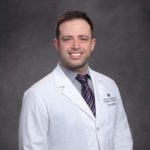Learn about the different medications used to help treat addiction and withdrawal symptoms.
There are many parts to a treatment plan for addiction. Due to the chemical changes that come from substance use, there are some drugs that can help to restore chemical imbalances and assist with recovery.
Medication-assisted treatment (MAT) can be a key part of a care model that is made for each patient. The specific addiction treatment prescribed will depend on the patient, rehab facility and a doctor’s advice.
How Medications Help with Addiction Treatment
Addiction medications can help in many ways. Drug abuse causes chemical changes in the brain that can make it hard to finish detox. Such treatment drugs work to:
- Limit symptoms of detox
- Limit drug cravings
- Stop drug use
- Limit the benefits of drug abuse
- Cause adverse side effects when a drug is used
Types of Addiction Medications
There are several medications that can be used to treat addictions, depending on the substance used. Because each drug affects a person’s brain in some way, knowing what substances were used over what time period is key to determining which medications are right for the person.
Alcohol Addiction Medications
Alcohol withdrawal can lead to dangerous side effects. For this reason, medical detox may be the safest way to stop drinking if a person has an alcohol dependency. During detox, doctors monitor the patient’s status and may use medications to ease symptoms.
Some medicines can also help end heavy drinking. They reduce the good feelings of alcohol use to disrupt the reward response to drinking. This can help stop cravings.
- Acamprosate: Acamprosate can be started after alcohol withdrawal symptoms are resolved. Acamprosate must be taken every day and helps to maintain abstinence by decreasing cravings. It is very useful in the most severe cases of alcohol use disorder.
- Disulfiram: Disulfiram makes people feel ill after drinking alcohol. If a person drinks alcohol while taking disulfiram, it causes symptoms of nausea, headaches and vomiting. It is taken to prevent the consumption of alcohol.
- Gabapentin: Gabapentin is a versatile medication that can be used to treat alcohol use disorder by preventing cravings. It can also be used as an alcoholic seizures treatment during detox and withdrawal.
- Naltrexone: Naltrexone blocks the positive feelings that happen when a person drinks alcohol. Naltrexone decreases a person’s urge to drink and makes it less pleasurable when they do so. The drug also helps with opioid addictions in the same way.
Related Topic: Medications that can help you stop drinking.
Opioid Addiction Medications
Several drugs help treat opioid addiction. Some drugs prevent a person from feeling good when they use opioids, while others can help a person taper off opioids. During opioid detox, doctors might also prescribe medicine to treat withdrawal symptoms.
- Methadone: Methadone targets the same receptors in the brain as other opioids, but produces less euphoria. This can help treat opioid addiction. Its dose can be lowered to wean someone off of an opioid.
- Buprenorphine: Buprenorphine, like methadone, is an opioid that lasts longer in the body than opioids of abuse. Buprenorphine both activates and blocks opioid receptors, so it helps to block episodes of acute opioid abuse.
- Sublocade™: Sublocade™ is a long-acting injectable formulation of buprenorphine. People go to clinics to get a Sublocade™ injection once per month. The drug can help stop cravings and block the euphoric effects of other opioids.
- Narcan (Naloxone): Narcan is a medicine used to revive people who overdosed on opioids. Due to the rise in opioid overdoses, many people carry Narcan with them. Narcan works by blocking opioid receptors and binding more tightly than opioids of abuse, stopping an overdose as it occurs.
- Suboxone: Suboxone is a combination of buprenorphine and naloxone.
- Naltrexone: Naltrexone can help treat opioid abuse. It works by stopping the euphoria that comes with taking opioids or opiates. This can stop the cravings that come with addiction.
- Vivitrol: Vivitrol is a long-acting injectable formulation of naltrexone. People get a Vivitrol shot once a month rather than taking a tablet once daily.
Related Topic: Opioid replacement therapy
Benzodiazepine Addiction Medications
Benzodiazepines (benzos) are used to treat anxiety and insomnia. Because of their relaxing effects, people may develop an addiction to benzos.
- Klonopin: Klonopin is used to treat seizures and panic disorders. Because it lasts for a long time, some doctors use low doses as substitution therapy for other benzos. However, it needs to be used carefully since it can also be addictive.
Stimulant Addiction Medications
There are no drugs used just for stimulant addiction. A few drugs are used off-label to manage stimulant addiction and withdrawal. However, scientists are working to create new, effective medications for this use.
- Bupropion: Bupropion is an antidepressant that affects the brain. It can help control symptoms of stimulant withdrawal.
Other Medications Used in Addiction Treatment
Some drugs have broad or general uses for treatment. Experts are still studying many of these types of drugs to try to find new and effective medicines for managing addiction.
- Baclofen: Baclofen is a muscle relaxant. It is used to treat muscle pain, spasms and seizures. It is also used to help relieve alcohol and opioid withdrawal because it acts on the same parts of the brain. However, more clinical trials are needed to prove its ability before it can be widely used.
- Remeron: Remeron is an antidepressant. It is not well understood yet, but it blocks certain receptors in the brain. Taking the drug can help ease some symptoms of withdrawal.
- Topiramate: Topiramate is used to treat conditions like epilepsy and migraines. Some clinical trials show that it can also help treat alcohol and cocaine addiction.
Medications Used to Treat Co-Occurring Disorders
It is common for people with substance use disorders to also have a mental health disorder. When a mental health condition co-occurs with addiction, both must be treated at the same time to reduce the risk of a setback. Doctors may prescribe a drug to help manage symptoms of mental disorders. Some of those drugs are:
Possible Risks and Side Effects of Addiction Treatment Medications
The side effects of taking these treatment drugs are as varied as the drugs are themselves. One of the risks of drugs to treat addiction is that they can become addictive themselves. These drugs can have similar effects as the drugs being managed.
Benefits of Medical Detox and MAT
The main benefit of detox is that the patient is under medical supervision. Doctors can help if a serious withdrawal event occurs. Proper care also makes symptoms less severe.
If you or a loved one would like to learn more about addiction treatment, contact The Recovery Village. Our helpful representatives are available to answer your questions and help you understand available treatment options that could work for your unique situation.


Anti-Anxiety Medications
Douaihy AB, Kelly TM, Sullivan C. “Medications for Substance Use Disorders.” Social Work and Public Health, September 9, 2013. Accessed May 13, 2019.
National Institute on Drug Abuse. “Treatment Approaches for Drug Addiction.” January 2019. Accessed May 13, 2019.
Johnson BA, Ait-Daoud N, Wang X-Q, et al. “Topiramate for the Treatment of Cocaine Addiction.” JAMA Psychiatry. 2013. Accessed May 16, 2020.
Marammani AGI, Rovai L, Rugani F, Bacciardi S, Pacini M, Dell’Osso L, Maremmani I. “Clonazepam as Agonist Substitution Treat[…]dence: A Case Report.” Care Reports in Psychiatry, January 30, 2013. Accessed May 13, 2019.
Kampman KM. “The Search for Medications to Treat Stimulant Dependence.” Addiction Science & Clinical Practice, June 2008. Accessed May 13, 2019.
Cooney G, Heydtmann M, Smith ID. “Baclofen and the Alcohol Withdrawal Syndrome-A Short Review.” Frontiers in Psychiatry, January 22, 2019. Accessed May 13, 2019.
Substance Abuse and Mental Health Services Association. “Medication and Counseling Treatment.” May 7, 2019. Accessed May 13, 2019.
The Recovery Village aims to improve the quality of life for people struggling with substance use or mental health disorder with fact-based content about the nature of behavioral health conditions, treatment options and their related outcomes. We publish material that is researched, cited, edited and reviewed by licensed medical professionals. The information we provide is not intended to be a substitute for professional medical advice, diagnosis or treatment. It should not be used in place of the advice of your physician or other qualified healthcare providers.